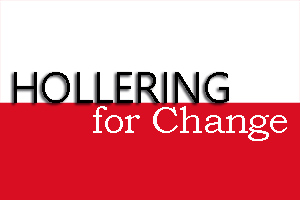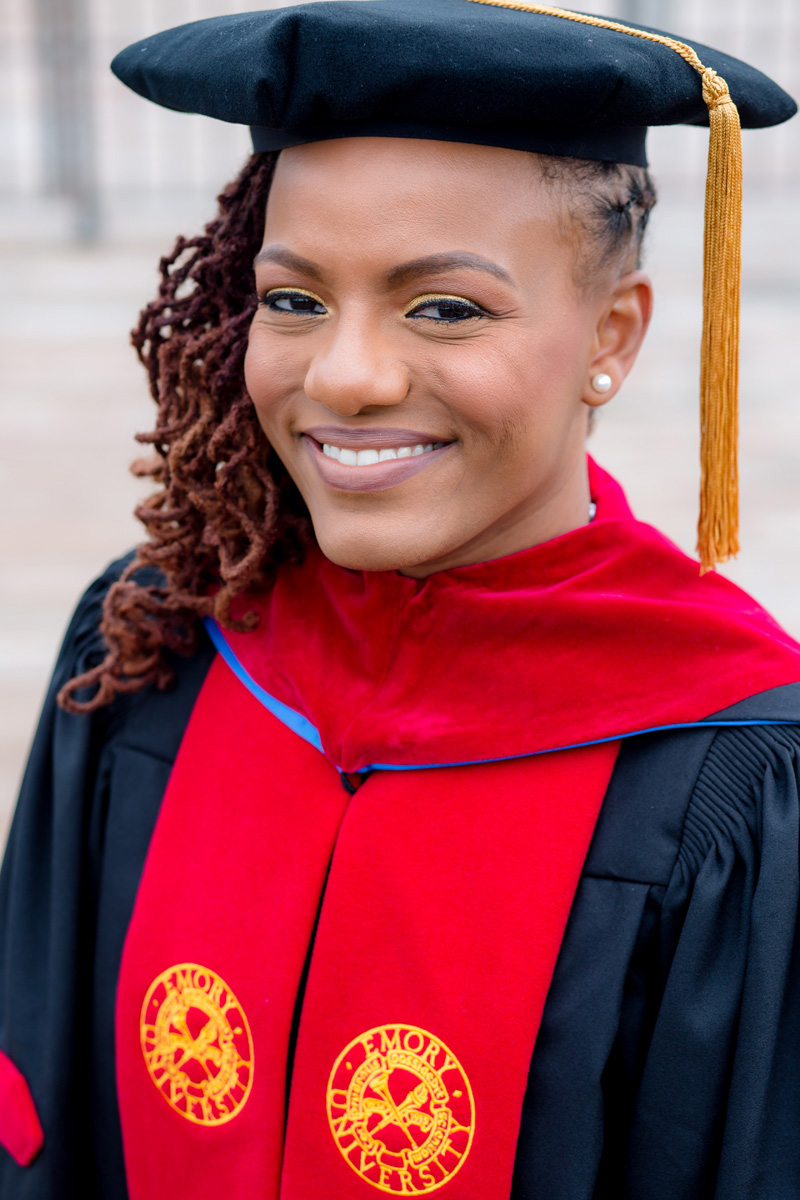Key points:
- Pastors are often so concerned with being nice that they neglect their own safety, and they can find themselves in challenging situations as a result.
- It is time for clergy to learn how to holler.
- Drawing attention to yourself and using your voice are among several tips that clergy — and especially clergywomen — can follow to stay safe.


Photo by Dominque J. Allan, Create It Photography, LLC.
Commentaries
It’s Sunday morning, and I am sitting in my home office fine-tuning my sermon before the service when I hear a loud sound. BOOM! BOOM! BOOM!
The door rattles and shakes. I jump in my seat. I go to the parsonage door to see who is banging on it this early and this close to worship. It’s 8:30 a.m., and the service starts at 9:00 a.m.
I open the door and see a church member standing there. At that moment, I am preparing for the worst. I am bracing myself for her to tell me of a tragic death or accident. I am thinking that someone possibly got hurt at the church or perhaps there has been a fire. So many scenarios are passing through my mind. I am trying to stay calm to assess her and to listen for the bad news. I am doing my best to not appear rattled, but the loud banging on the door has scared me.
As I listen to the church member share what is wrong, I am finally able to breathe. There is no emergency. There is no imminent danger. She just needed to vent and get a little counseling. I tell her she scared me. I give her my card to set up a time to meet later versus popping up at my house. We have a follow-up conversation the next day about boundaries.
As I talk with her, I realize that she would not hurt a fly. But, on that Sunday, all I can think about is the Rev. Marita Harrell, a North Georgia pastor who was recently killed trying to counsel someone on a home visit. I keep thinking that this incident could have gone terribly wrong; this is how pastors get hurt.
Pastors are often so concerned with being nice or not appearing rude that we forsake our own safety. We end up in uncomfortable circumstances because we are afraid of hurting someone’s feelings.
Yes, we are committed to serving and loving others. But we cannot forget what Jesus said is the greatest commandment: “‘Love the Lord your God with all your heart and with all your soul and with all your mind.’ This is the first and greatest commandment. And the second is like it: ‘Love your neighbor as yourself.’” (Matthew 22:37-39, NIV)
I do not believe that loving yourself equates to subjecting yourself to trauma. We as clergy use our voices to proclaim the life-changing gospel of Jesus Christ. We use our voices to advocate for the disenfranchised and impoverished among us. Yet, we find it difficult to use our voices to speak out for ourselves.
It is time for clergy to learn how to holler. What is the holler?
“The Holler is the primal cry of pain, abuse, violence, separation … ,” writes A. Elaine Brown Crawford, in Hope in the Holler: A Womanist Theology (published by Westminster John Knox Press, 2002). “[It] is the refusal to be silenced … The Holler is the renunciation of racialized and genderized violence … [It] is a cry to God to ‘come and see about me,’ one of your children.”
In other words, hollering is lamenting. It is naming our pain. It is giving our pain a sound. It is individual. It is communal. And it is necessary for our mental, spiritual and physical health. It is necessary in order for us to be safe.
In a conversation with the Rev. Dr. Jalene Chase, former Metro Transit Police Officer in Washington and current pastor of Goshen United Methodist Church in Gaithersburg, Maryland, I asked for some tips for clergy — specifically clergywomen — when engaging people who make them feel uncomfortable.
She said:
- Draw attention to yourself.
- Use your voice. Verbalize when you feel threatened. For instance, say in a firm and loud tone, “Sir, you are in my personal space and I feel uncomfortable.”
- Disengage when things start to escalate because we can’t help everyone.
- Never be in the church building alone or with someone you do not know.
- Be aware of people’s body language because sometimes their body language differs from the words they are saying.
- Remember that when things start to escalate, we need to help ourselves first. We need to be there another day to help someone else — help someone who is open to receiving our help.
My fellow clergy brothers and sisters, our voices are not just for God and God’s people; our voices are for us, too. It is OK to use your voice to advocate for yourself and to bring attention to the moments when you feel unsafe or uncomfortable. You matter. Your presence is important.
Remember that the Spirit of the living God is with you every single day. That Spirit will and can give you holy boldness to use your voice, to give pain a sound and to say that you are not OK, so that the people of God can intervene for you just as you have intervened and interceded for them. You are worth it!
Butler is the senior pastor of Asbury Town Neck United Methodist Church in Severna Park. In 2019, she received her doctor of ministry degree from Candler School of Theology with a focus in Biblical Interpretation and Proclamation, and her project was titled, "The Power of Mourning: Creating Spaces of Vulnerability for Black Clergywomen to Lament and Holler." She is a contributor to Do Not Be Afraid: Bishops & Young Clergy Share Signs of Resurrection & Words of Hope; I’m Black. I’m Christian. I’m Methodist.; and What’s Next?: Twenty-Two United Methodist Leaders Discuss the Future of the Church. She is a preacher, lecturer, facilitator, author and scholar.
News contact: Tim Tanton at (615) 742-5470 or newsdesk@umcom.org. To read more United Methodist news, subscribe to the free Daily or Friday (weekly) Digests.



